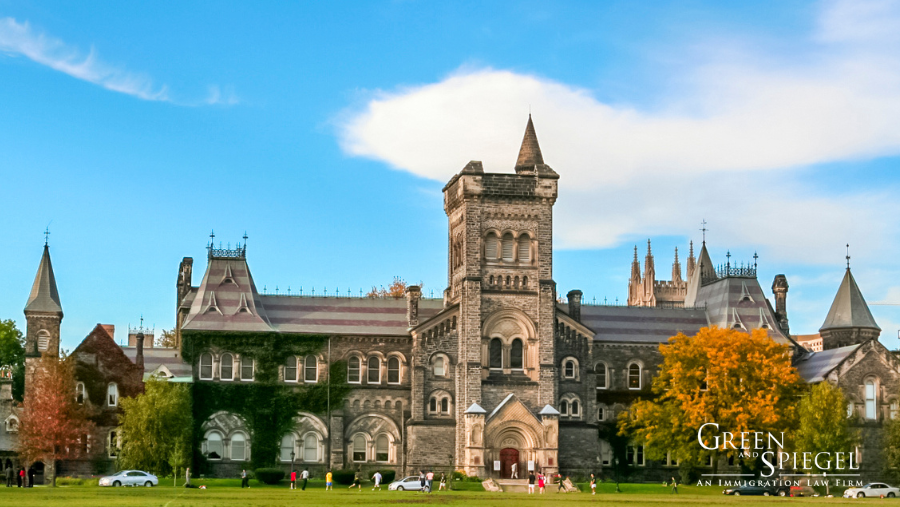TRAVEL RESTRICTIONS
Since the emergence of the coronavirus disease (COVID-19) in March 2020, the Government of Canada has released a series of measures to protect public health. Multiple Orders in Council, which are legal instruments made by the Governor in Council, have come into effect since then and provide the legislative basis for the travel restrictions. Additionally, Immigration, Refugees and Citizenship Canada (IRCC) has released Program Delivery Instructions and Special Instructions, and orders have been made pursuant to the Quarantine Act, which, in conjunction with the Orders in Council, dictate who is subject to the travel restrictions, who is exempt, and the obligations of individuals upon entry to Canada.
In light of these measures, foreign nationals attempting to travel to and enter Canada must demonstrate that the purpose of their travel is essential (non-discretionary) and they cannot be exhibiting symptoms of COVID-19. Furthermore, they must be traveling directly from the U.S. or, if they are traveling to Canada from a country outside the U.S., they must fall under a category of persons exempted from the travel restrictions. Exemptions generally include but are not limited to, temporary foreign workers, international students, and immediate family members with authorization from IRCC.
Although Canadian citizens and permanent residents may travel to and enter Canada, all individuals traveling within Canada must also be mindful of provincial and territorial requirements.
These complex rules governing international and domestic mobility are subject to change as Canada’s response to COVID-19 continues to evolve to protect public health. If you have any questions regarding travelling to and entering Canada, please contact us.
QUARANTINE REQUIREMENTS
Another measure the Government of Canada has imposed to protect public health is the requirement for every individual entering Canada to self-quarantine for 14 days regardless of nationality or where they are coming from.
With only few exceptions, all travelers entering Canada must provide details regarding their quarantine plan, which must include among other details the location of where they will reside during their self-isolation period and how they will transit from the port of entry to their destination.
A Border Security Officer at the port of entry will determine whether the traveler can enter Canada after evaluating their quarantine plan and if they qualify for an exemption to the travel restrictions. It should be noted that failure to adhere to the quarantine plan may result in significant penalties, such as a fine of up to $750,000, six months of jail time, or being found inadmissible to Canada.
Please contact us for additional information about the quarantine requirements and how you should prepare before attempting to enter Canada.
NEW EMPLOYER OBLIGATIONS
Given the new quarantine requirements, the Government of Canada extended the scope of compliance inspections for employers and their obligations effective April 20, 2020. Per the new requirements, employers must not prevent a foreign worker from respecting their obligations under the Quarantine Act, the Emergencies Act, or provincial legislation. Employers should also ensure, among other new responsibilities, that foreign workers are paid “substantially the same” wage while they are completing their 14-day mandatory self-quarantine period. Additional information regarding new employer obligations and the employer compliance regime can be found here.
CHANGING EMPLOYMENT
On May 12, 2020, a new temporary public policy came into effect that allows temporary workers already in Canada to more quickly begin work prior to a final decision on their work permit application. Most foreign nationals with implied status, a valid work permit, or who hold authorization to work without a work permit may utilize this new policy if they are changing occupations or employers, and if they have secured a job offer under the Temporary Foreign Worker Program or the International Mobility Program.
Please contact us if you are a temporary worker already in Canada and wish to move into a new occupation or begin working for a new employer.
RESTORATION
Coming into effect on July 14, 2020, and remaining in place until December 31, 2020, the purpose of this public policy is to extend the period of time in which foreign nationals can restore their status.
The public policy allows a worker, student or visitor to apply to restore their status up until December 31, 2020, if their status expired after January 30, 2020. This is a noteworthy change as the restoration period is normally only 90 days. Additionally, the public policy also allows foreign nationals who previously held work permits to work while their restoration and work permit applications are being processed.
If you are inside Canada and do not currently hold valid status, please contact us to determine whether you are eligible to apply for restoration under this new public policy.
INTERNATIONAL STUDENTS
In light of COVID-19, IRCC has announced temporary changes regarding work authorization for international students.
Specifically, international students who were eligible to work on-campus, but were forced to drop to part-time studies or take a break in their studies due to COVID-19 for the winter, spring and summer 2020 semesters, may work remotely for their employers that are located on-campus.
On the other hand, with respect to off-campus work authorization, international students may continue to work up to 20 hours per week notwithstanding the fact that they have been forced to drop to part-time studies or take a break in their studies due to COVID-19. IRCC has confirmed that the only exemption to working beyond 20 hours per week is if the international student is working in an essential service or function.
Our team at Green and Spiegel LLP would be happy to speak with international students regarding their eligibility to work in Canada and/or new requirements to submit their application for a post-graduation work permit application.
BIOMETRICS
Although Service Canada is slowly reopening its offices for biometrics collection services, IRCC announced on July 15, 2020, a public policy exempting temporary residence applicants applying from within Canada from having to give their biometrics. As such, IRCC will fully process and make decisions on applications without applicants submitting their biometrics. Notably, this public policy does not yet extend to permanent resident applicants already in Canada. For any questions about your application and biometrics requirements, do not hesitate to contact us.
CITIZENSHIP
The Government of Canada has officially confirmed that, since March 17, 2020, all citizenship ceremonies, tests, hearings, and interviews have been canceled due to COVID-19. While some fortunate applicants have been scheduled to take the Oath of Citizenship virtually, most citizenship applications remain pending.
For applicants who have been requested to provide documents during the processing of their citizenship application, IRCC has stated that an additional 90 days will be granted to send the documents if the applicant notifies the local IRCC office that they have been affected by COVID-19, are in self-isolation or have recently returned from abroad.
For any questions regarding citizenship eligibility and/or your citizenship application, our team at Green and Spiegel LLP would be happy to advise.
IMMIGRATION LEVELS
On March 12, 2020, IRCC released information on the Government of Canada’s Immigration Levels Plan for 2020-2022. The Levels Plan determines how many permanent residents will be admitted to Canada for the upcoming calendar years, with targets and ranges set for the total number of permanent residents for each immigration category.
The objective was to welcome a total of 341,000 new permanent residents in the year 2020, and this number is anticipated to increase to 351,000 and 361,000 in the year 2021 and 2022, respectively.
Despite limited operational capacity due to COVID-19, the Government of Canada has maintained that they are still working to achieve these targets and, moreover, to open the parent and grandparent sponsorship program at the earliest available time in 2020. More detailed information about the Immigration Levels Plan for 2020-2022 can be found here.
EXPRESS ENTRY
Since March 2020, Canadian Experience Class (CEC) candidates in the Express Entry pool have required a relatively low Comprehensive Ranking System (CRS) score to receive an Invitation to Apply (ITA) for permanent residence. Indeed, the range of a minimum CRS scores needed for CEC candidates to receive an ITA from March 23 until July 23 was between 467 and 431, with the lowest draw occurring on June 25, 2020. For reference, CEC candidates with CRS scores lower than 450 have not been issued an ITA in approximately one year. While a general draw occurred on July 8, 2020, wherein Federal Skilled Workers were also issued an ITA, the minimum CRS score was much higher, relatively, coming in at 478.
If you wish to determine your eligibility to submit a profile in the Express Entry system, discover ways to increase your CRS score if you already created your profile and/or explore other ways to apply for permanent residence, please schedule an appointment with us.





